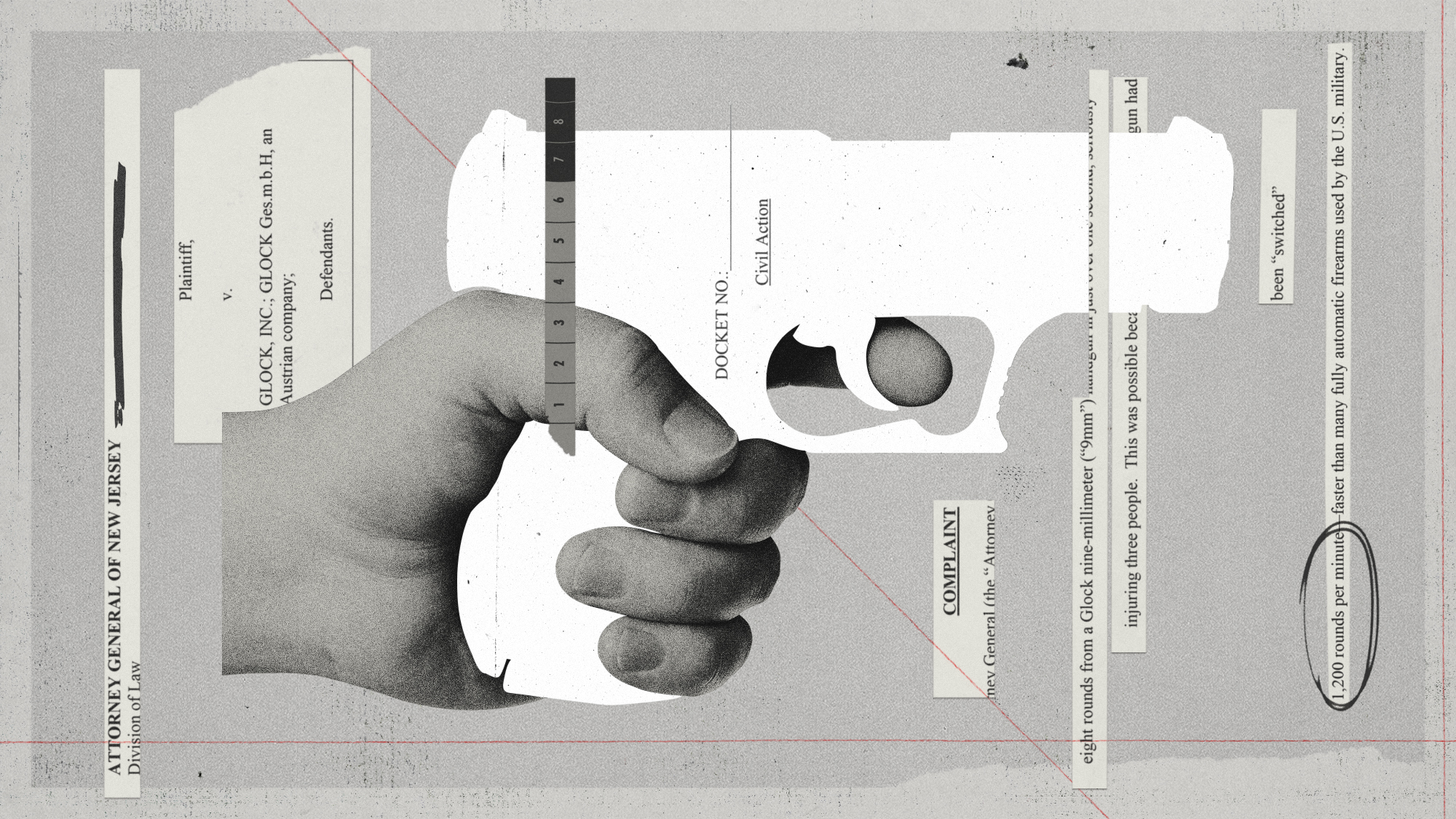Do 'stand your ground' laws protect victims or promote violence?
Two recent gun violence tragedies have cast renewed scrutiny on the controversial self-defense protections in several states


A free daily email with the biggest news stories of the day – and the best features from TheWeek.com
You are now subscribed
Your newsletter sign-up was successful
The debate over gun control seems to be never-ending, and a pair of recent tragedies have only further stirred the pot: A 16-year-old honor student in Kansas City — Ralph Yarl — was shot while ringing a doorbell at the wrong house, and a New York woman — Kaylin Gillis — died after a homeowner shot her allegedly for turning around in his driveway.
Both situations have cast renewed scrutiny on controversial self-defense protections known as "stand your ground" laws. Such rules are based on a common law ruling known as the "castle doctrine,'' which says that "individuals have the right to use reasonable force, including deadly force, to protect themselves against an intruder in their home," per the National Conference of State Legislatures. Today, there are about 35 states that have implemented some type of "stand your ground" law, CBS News reports.
But how far is too far when it comes to self-defense? Do such laws afford people a license to kill without discretion? Or are they necessary to make sure those who act in self-defense are not punished?
The Week
Escape your echo chamber. Get the facts behind the news, plus analysis from multiple perspectives.

Sign up for The Week's Free Newsletters
From our morning news briefing to a weekly Good News Newsletter, get the best of The Week delivered directly to your inbox.
From our morning news briefing to a weekly Good News Newsletter, get the best of The Week delivered directly to your inbox.
'Subject to be shot'
The only thing "stand your ground" laws do is make it so that "every U.S. postal worker, every Amazon delivery person, every pizza delivery person, every Girl Scout volunteer, anybody knocking on your door now becomes someone who's subject to be shot," Kansas City Mayor Quinton Lucas (D) argued on MSNBC.
Indeed, critics of "stand your ground" laws allege they create more problems than they do solutions. Under such rules, an individual may be able to use deadly force "even if it can be proven that [they] knew [they] had safe alternatives to force and violence by stepping away," Ari Freilich, the state policy director for the Giffords Law Center to Prevent Gun Violence, told NPR. The laws also exacerbate "racial biases in the legal systems, "gender biases in the legal system," and create "a feedback loop of more distrust of the system, and more violence," she added.
As far back as 2012, "stand your ground" laws "were being misinterpreted on a grand scale," the editorial board of the Florida Times-Union wrote at the time, adding that the impulse to fire a gun is not due to fear for one's safety, but because of "the myths and the lunatic notions that are generated by the gun manufacturing industry, which profits when gun sales go up." This is why these laws should be repealed, because the people who get hurt are "victims of those who invoke it to needlessly kill others with impunity," Marissa Alexander wrote for NBC News in 2019.
'Put victims and potential victims, not criminals, first'
While opponents of "stand your ground" laws argue that one could simply retreat instead of shooting at an intruder, "a 'duty to retreat' is a legal concept devoid of common sense," Rep. Matt Gaetz (R-Fla.) opined in 2018 for the Orlando Sentinel. Running away is "no good" if an attacker has a gun, he said. "Stand your ground" laws are "common sense, and put victims and potential victims, not criminals, first — the way it should be." Further, he said, stand your ground laws "do not promote a wild west mentality — they prevent it. Citizens have the right to protect and defend themselves. They should not be forced to flee when under attack."
A free daily email with the biggest news stories of the day – and the best features from TheWeek.com
In addition to affording citizens a way to protect themselves, "stand your ground" laws also "make it easier for would-be victims to protect themselves when the police can't arrive fast enough," John Lott wrote for the Chicago Tribune in 2013. Lott, like Gaetz, believes that "requiring people to retreat sometimes prevented people from defending themselves," adding that "allowing people to protect themselves should be an issue that crosses both racial and political lines."
Justin Klawans has worked as a staff writer at The Week since 2022. He began his career covering local news before joining Newsweek as a breaking news reporter, where he wrote about politics, national and global affairs, business, crime, sports, film, television and other news. Justin has also freelanced for outlets including Collider and United Press International.
-
 Local elections 2026: where are they and who is expected to win?
Local elections 2026: where are they and who is expected to win?The Explainer Labour is braced for heavy losses and U-turn on postponing some council elections hasn’t helped the party’s prospects
-
 6 of the world’s most accessible destinations
6 of the world’s most accessible destinationsThe Week Recommends Experience all of Berlin, Singapore and Sydney
-
 How the FCC’s ‘equal time’ rule works
How the FCC’s ‘equal time’ rule worksIn the Spotlight The law is at the heart of the Colbert-CBS conflict
-
 Did Alex Pretti’s killing open a GOP rift on guns?
Did Alex Pretti’s killing open a GOP rift on guns?Talking Points Second Amendment groups push back on the White House narrative
-
 Why the White House is behind a rare Supreme Court push to limit gun ownership
Why the White House is behind a rare Supreme Court push to limit gun ownershipIN THE SPOTLIGHT Justices are preparing to dive back into the choppy waters of the Second Amendment as the White House pushes to penalize recreational narcotic users
-
 'Despite all past efforts, system failures occur'
'Despite all past efforts, system failures occur'Instant Opinion Opinion, comment and editorials of the day
-
 Supreme Court upholds 'ghost gun' restrictions
Supreme Court upholds 'ghost gun' restrictionsSpeed Read Ghost guns can be regulated like other firearms
-
 'On arrival, workers faced a system of racial segregation'
'On arrival, workers faced a system of racial segregation'Instant Opinion Opinion, comment and editorials of the day
-
 Why ghost guns are so easy to make — and so dangerous
Why ghost guns are so easy to make — and so dangerousThe Explainer Untraceable, DIY firearms are a growing public health and safety hazard
-
 Precedent-setting lawsuit against Glock seeks gun industry accountability
Precedent-setting lawsuit against Glock seeks gun industry accountabilityThe Explainer New Jersey and Minnesota are suing the gun company, and 16 states in total are joining forces to counter firearms
-
 Kamala Harris' muted support for gun restrictions
Kamala Harris' muted support for gun restrictionsThe Explainer How would the Glock-owning Democratic nominee approach America's contentious gun debate?
